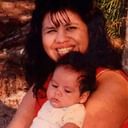
Virginia’s death row shrank to just two prisoners on March 12 as recently elected Fairfax County, Virginia Commonwealth’s Attorney Steve T. Descano agreed to a deal to resentence former death-row prisoner Mark Lawlor (pictured) to life without parole. Lawlor was sentenced to death in 2011 for the murder of Genevieve Orange. No one has been sentenced to death in Virginia since.
A federal appeals court overturned Lawlor’s death sentence in 2018, holding that the trial judge had unconstitutionally prevented the defense from presenting expert testimony that Lawlor would not be dangerous in a prison setting. Former Commonwealth Attorney Raymond F. Morrogh, whom Descano defeated in the 2019 Democratic primary election, had personally prosecuted Lawlor and had argued that the death penalty was appropriate because Lawlor would pose a future danger to society unless sentenced to death. He nevertheless moved to bar the defense testimony and the trial court granted his motion.
Morrogh had planned to reprosecute Lawlor, if re-elected. But Descano, who ran on a platform of criminal justice reform that included a pledge to “not seek the death penalty — period, full stop,” agreed to resentence Lawlor to life. Descano called Lawlor’s life sentence “a notable outcome because it exemplifies that our criminal justice system can seek justice, find resolution, and keep our community safe while adhering to our community’s values.”
The resentencing is emblematic of the decline in Virginia’s use of the death penalty. Though Virginia is second only to Texas in the total number of executions performed since 1976 and has executed a higher percentage of its death-row prisoners than any other state, it has not imposed any new death sentences in nearly nine years. At its peak in 1994, Virginia imposed 10 death sentences in a single year and had as many as 58 prisoners on its death row in 1995. But death sentences plummeted after Virginia established regional capital defender offices in 2004, falling from an average of 5.8 new death sentences per year in the decade before the capital defender offices opened to fewer than one per year since then.
Descano was one of four reform-minded prosecutors elected in Virginia’s Washington, DC suburbs in 2019, all of whom said they would reduce or halt the use of the death penalty in their jurisdictions.
At Lawlor’s trial, his defense presented mitigating evidence detailing his traumatic upbringing and drug and alcohol addiction. Lawlor was beaten and abused by his mother, and his sister was raped by their father. He was kicked out of his home at gunpoint at age 16 when he attempted to protect his sister from their abusive parents. He then began drinking and using drugs and was sent to prison at age 18 when he drove drunk and caused a crash that killed a friend. Lawlor’s lawyers argued to the jury that, on the day he killed Orange, he was so intoxicated on crack cocaine and alcohol that he could not form the intent to commit premeditated murder.
As he was resentenced to life, Lawlor expressed remorse for his crime. “I just really want to apologize to the family,” he said. “I know those words are kind of empty. … What I did was a horrible, horrible thing. I took the life of a wonderful human being, and she’s gone, and I’m sorry for that. If the family ever wants to meet with me, talk to me, get closure, I’m available. And again, I’m very sorry.”
Tom Jackman, Va. man sentenced to death in 2011 gets new hearing, and new prosecutor agrees to life sentence, The Washington Post, March 12, 2020.



